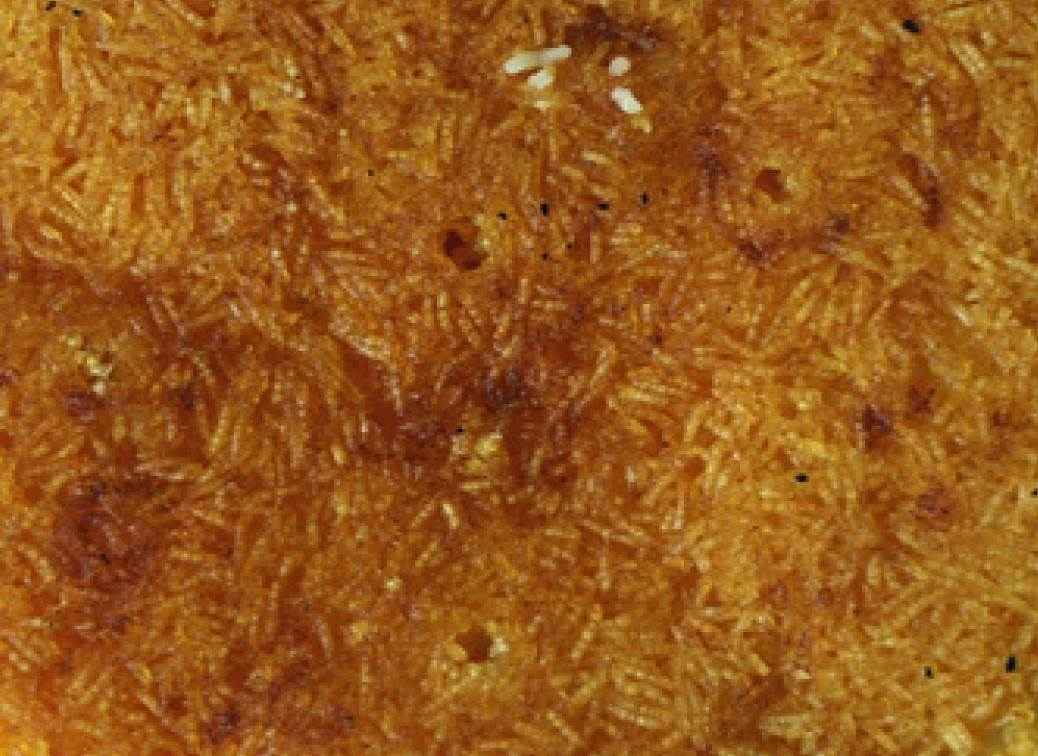Thanksgiving crept into our lives. When we first settled down and established ourselves in Los Angeles, my parents and I were a family of Iranian-Armenian refugees who had come to America from Tehran at the tail end of the 80s with no real grasp of what we were arriving in. My earliest memories of life post-arrival revolved around the birth of my sister (the first one of us to be born in America) and going to the airport to greet extended relatives, the uncles, aunts, grandparents, and cousins who at first felt like strangers, each one having made the journey to new lives.
For several years, we didn’t feel any pull to participate. And then that changed, in the way that things change. Thanksgiving came unannounced to our house, a quiet indoctrination into American culture, a sign of adaptation with no beginning or end.
Though we didn’t understand what the day represented, we were navigating a new country and its customs, and so we drew comfort from being in each other’s presence. It was good, a once-a-year excuse not only to get together, but to feel American, to struggle with these unfamiliar culinary traditions. Stuffing, cranberry sauce, and glazed ham… our Thanksgiving table never looked like the ones I saw on TV sitcoms or commercials, the ones I subconsciously mined for American social and fashion cues. But it was our Thanksgiving table.
The turkey was there. My mom learned to perfect it by watching Food Network cooking shows, coating the bird in her own arsenal of spices bought at the ethnic supermarkets catering to L.A.’s Iranian and Armenian communities aching for a taste of home. But there were also several variations of fluffy basmati rice, bejeweled with saffron, barberries, and slivers of almonds and orange peel; baba ghanoush and yogurt dip replaced green beans and brussels sprouts, and for many years, there was no pumpkin pie (or pie of any kind). Instead, our dessert table consisted of baklava trays, pomegranates, and dates, shared amongst all of us while drinking tea.
Over the years, these “traditional” foods have never gone away. They are how we stay alive, link us back to life before circumstance brought us here, but also one to a past disrupted by cycles of migration that created a diaspora, leaving little room to feel a sense of complete permanence in one place.
Thanksgiving was just another opportunity to acknowledge where we came from. At the dinner table, through parsley and sumac, we regenerated.
More American foods have made their way onto our menu. The most recent introduction was candied yams, a curiosity not everyone has managed to appreciate. But it’s still the tahdig – a layer of crust at the bottom of the rice pot – that everyone looks forward to and fights over every year. Stuffing has been completely vetoed, a concept that never shook its strangeness.
Our ties to the U.S. are still new and fresh; we are still adapting, attempting to make sense of life in America, and Thanksgiving, too. My parents were tasked with trying to rebuild their lives, but my sister and I feel tasked with figuring out what it means to be American. Part of that process has involved acknowledging and exploring the underlying history of Thanksgiving and the indigenous communities of America, reflecting on the difficult to ignore parallel fates of genocide, colonization, trauma but also survival and resilience that we, as Americans of Armenian descent share with Native Americans.
Thanksgiving has gone through an evolution, its meaning and food changing over the years to better reflect who we were, who we became and who we now are. It’s a day where we’ve made room for all the parts and places that have shaped and nourished us to exist together. The suitcases we arrived with are in the garage, tucked away amongst the kind of material accumulation which occurs as a result of living in the U.S. for decades, but we’re still in the process of unpacking and addressing the hidden histories of those places – both Iran and America – and all the truths they carry that have been lost or left unsaid.
Liana Aghajanian





